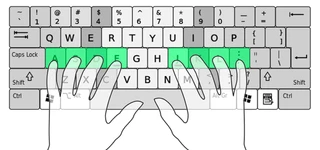Top Digital Transformation Trends in The Automotive Industry

Technology surrounding the automotive industry is changing at a rapid pace. From software solutions that help manage a dealership becoming mainstream to cars that can drive themselves, sky has become the limit when it comes to the rise of digital technology in the automotive industry.
By 2022, the automotive industry investment is likely to be as high as $82 billion owing to growing digitalization and technology advancement. The tech-driven automotive industry is increasingly successful in meeting customer demands at every stage – researching, purchasing and operating a car.
Let’s take a look at the recent advancements in digital technologies that are making the biggest impact on the automotive industry.
Prevalence of Dealership Management Software
As technology permeates more and more into our everyday lives, it is only a matter of time before dealerships everywhere start incorporating dealership management software into their daily operations. Not only is it automating and digitizing the various verticals of a dealership but is also great for overall process development.
As time passes for a dealership and its inventory, customers, finances, etc. keep growing, it would need sound dealership management software to keep a good grasp on the various verticals. Unless a dealership is adamant about being dependent entirely on manual efforts in this digital era, going with a DMS is the best option.
Dealership Management Software allows car sellers to keep their finances on track, practice efficient bookkeeping, track sales, generate reports and manage inventory with ease. A solution like eMsys AutoNet offers complete and seamless automation along with all the facilities and features that any automotive dealership would require for its day-to-day work. This software comes with an integrated accounting system that helps dealerships maintain their GST accounting and taxes. This popular dealership management software also generates MIS-based reports on daily sales, spares, services, etc. and works across locations for seamless dealership management.
Blockchain in the Automotive Industry
With concepts like AI, automation and cryptocurrency becoming popular points of discussion, blockchain is playing a significant role at the heart of all of it.
Blockchain, simply put, is a publicly distributed ledger (or a decentralized database) where transactions are continuously updated and digitally recorded. It’s a significant technological advancement as blockchain can perform transactions, and digital transfers and maintain records without involving a third-party mediator. This and the fact that blockchain is open-source has made it a piece of technology employed by seven hundred different applications.

Blockchain in the automotive industry has helped companies easily share ownership of corporate vehicles and access to cars and trucks. The technology is currently in its testing phase and is named Tesseract (not like the infinity stone, unfortunately). It will be launched by accounting and consulting firm EY, part of Ernst & Young Global Ltd. It will also allow access to data related to the use of vehicles, ownership insurance costs and other transactions. Along with this, it will also promote vehicle-sharing
Blockchain allows shared access to data that is maintained by a network of computers, without any third-party intervention. A fact says, that sharing data with blockchain technology is verified peer-to-peer. This ensures that no single party can tamper with it, assuring data security.
The concept of VLB Token, Vehicle Lifecycle Blockchain Token is a platform that stores and records all vehicle information. This includes information concerning vehicle production, ownership, recalls, warranty issues, repair and maintenance records, accidents and damages, insurance history, etc.
In order to access this data, you need to pay some platform’s internal cryptocurrency and the VLB Token. The token owners will be able to track and verify a vehicle’s history down to each part. This will further ensure profitability and make deals with a snap of their fingers.
The current advancements in blockchain are still being researched by companies like Volvo. But rest assured they will be making big headlines in 2018.
Automated Cars: The New Normal
A few years back, Elon Musk, the CEO of Tesla Inc., made headlines talking about the inclusion of the AutoPilot feature in their Model S line of cars. Tesla and Google were the two primary companies that started the race to develop self-driving cars. In fact, since then many companies have joined them.

The technology that enables automated cars and driverless travel has now reached its pinnacle with Google’s driverless car Waymo, now live and testing. Alphabet Inc, Google’s parent company, is currently testing the Waymo in Arizona, US. In fact, the car is also expected to be available for purchase later this year. Additionally, Uber, the ride-sharing company from San Francisco, has been developing their own self-driving car, which is in its testing phase.
The push for automation in driving has been largely due to becoming fuel efficient and countering the pressing traffic conditions. Driverless cars will be able to access up-to-date data which helps in monitoring traffic, digital maps, and other tools. These will help in determining the fastest, most efficient route possible, resulting in less traffic, congestion, and fuel waste.
Additionally, parking lots want cars to have space between them for drivers to move in and out of the vehicle. However, with automated cars, this will not be required as cars will be parking themselves, making it be possible for cars to be stacked more closely alongside each other. Driverless cars require an estimated 15% less space to park.
Internet of Automobiles
The Internet of Things (IoT) is like an interconnected network consisting of different devices and appliances. These devices can send and receive data from each other. Google Home and Amazon’s Alexa are the best examples of IoT in action. These products enable multiple smart devices to communicate and share information.

With regards to automobiles, IoT’s greatest impact has been in making connected cars possible. Wikipedia describes a connected car as one which is equipped with internet connectivity and usually, with a wireless local area network. This connection allows the cars to share network access with other devices, both inside and outside the vehicle.

Connected cars will further be able to personalise the driving experience and simplify it. While selecting between different car options, people prefer to take a test drive to make a sound purchase decision. With time, IoT will emulate the feel of a car for a customer even before they sit inside it. This is likely to become the norm for car purchases in the near future.
With IoT, cars are connected to each other and the grid, ensuring their seamless movement through intersections. This will allow them to instantly make way for emergency vehicles, self-report any accident, know better parking, and more.
Additionally, connected cars will use IoT to provide a seamlessly personalised experience. This is done by offering general internet services, entertainment options, social platform access, real-time recommendations, etc. Things like traffic information, car parking space availability, voice messaging, etc. are also possible using IoT.
These digital changes in the automotive industries might take a wee bit longer to come to complete fruition but their effects are starting in the present. As more and more automotive companies adapt to these changing trends, it is only a matter of time before the entire automotive industry has an overhaul in the way they operate.
Suggested Read: CRM, DMS for Automotive Industry: Difference & Benefits
A self-confessed pop-culture enthusiast, he loves everything to do with movies, comic books and travelling. Studied at Christ University Bangalore with a triple major in Journalism, Psychology and English, he has been working as a technical content writer over the last few years. After pursuing MBA from T... Read more




















